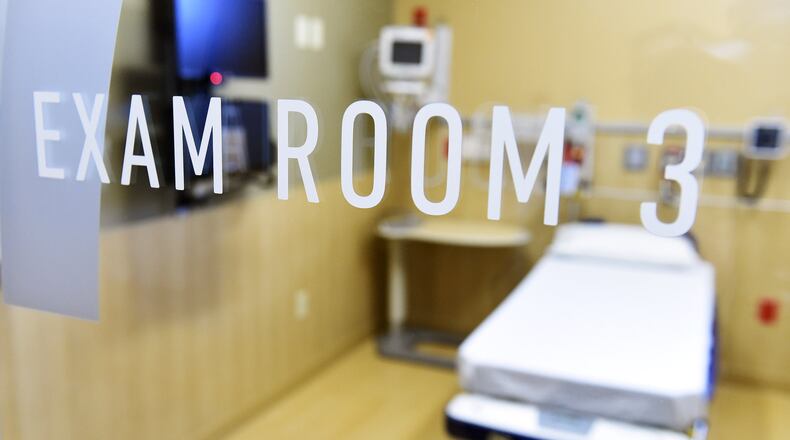Starting this month, rapid response teams from the county's GROW initiative — Getting Recovery Options Working — will be able to come into KHN hospitals and meet with patients who have agreed to get help for addiction.
The GROW teams have been successful in working with law enforcement agencies throughout the county, but have not previously reached out to hospital patients.
HOW TO GET HELP: A local opioid addiction resource guide
The teams generally consist of a social worker, a law enforcement officer, an emergency medical technician and a peer supporter — someone who is in recovery from addiction themselves.
At the hospitals, the teams will just be a social worker and a peer supporter.
The team will be dispatched to the hospital anytime someone admitted for a drug abuse-related overdose or illness agrees to meet with the them, said Tiffany Thompson, a clinical nurse manager at Grandview Medical Center who introduced the GROW initiative to Kettering Health Network.
“This is our opportunity to take part in something that is already working in the community,” she said.
In more than a third of the 4,000 overdose cases in Montgomery County last year, the patient was treated at a Kettering Health Network facility, Thompson said, totalling more than 1,400 patients.
RELATED: Local people share their addiction recovery stories
“This number does not include the thousands that come to us for health issues related to their IV drug use,” she said.
Good Samaritan Hospital treated about 700 overdoses last year, Thompson said, and KHN is anticipating its hospitals will pick up some of that volume due to Good Sam’s closure later this year.
In the past, hospital social workers have provided information to patients who present with substance abuse disorders and urged them to seek out treatment, Thompson said. But they didn’t really have the ability to follow up after the patient was discharged, she said.
“We don’t have the resources to proactively reach these people after they go home,” Thompson said. KHN hopes this program will offer more a more thorough followup, get more people into treatment, and save lives, she said.
“Once this connection is made with the peer support counselor and social worker, they are proactively reaching out to that patient,” she said.
Drug crisis in Ohio: What solutions are making a difference?
The hospitals will also be partnering with the Front Door Program run by Cornerstone treatment facilities, arming KHN employees with referral cards for any individual who doesn't want to see a GROW team while in the hospital or isn't initially receptive to treatment.
The cards — which Thompson called a “golden ticket’ — allows the individual to show up at Cornerstone’s Xenia Avenue intake facility at any time and be fast-tracked into medically assisted treatment either there or at a partner facility.
“This is the first time we’re bringing the Front Door Program into a medical facility,” said Wendie Jackson, who heads the program. Police officers from nine jurisdictions in Montgomery County have already been distributing the cards and Jackson said people have showed up a whole year later, when they’ve decided it’s time to get help.
RELATED: Ohio gets more firepower in fentanyl fight
Thompson said the cards will be most used in the emergency department where an overdose patient might not be at the hospital long enough to get a GROW team in to see them, and may be resistant to immediate help.
Premier Health Network has similar programs at two of its hospitals outside Montgomery County, spokesman Ben Sutherly said.
At Atrium Medical Center in Middletown, members of the the city of Middletown’s Heroin response team have the ability to meet with patients who are open to getting help while they are still at the hospital.
In Miami County, Premier funds a position on the Miami County Recovery Council and that person can respond to Upper Valley Medical Center to meet with overdose patients seeking treatment.
Miami Valley Hospital spokeswoman Sharon Howard also highlighted the hospital network’s Promise To Hope program.
It provides medically assisted treatment to opioid-addicted moms and withdrawal treatment for their babies born with neonatal abstinence syndrome.
In addition, four Miami Valley Hospital physicians have become certified to prescribe medically assisted treatment and they have served more than 125 patients to date.
About the Author
